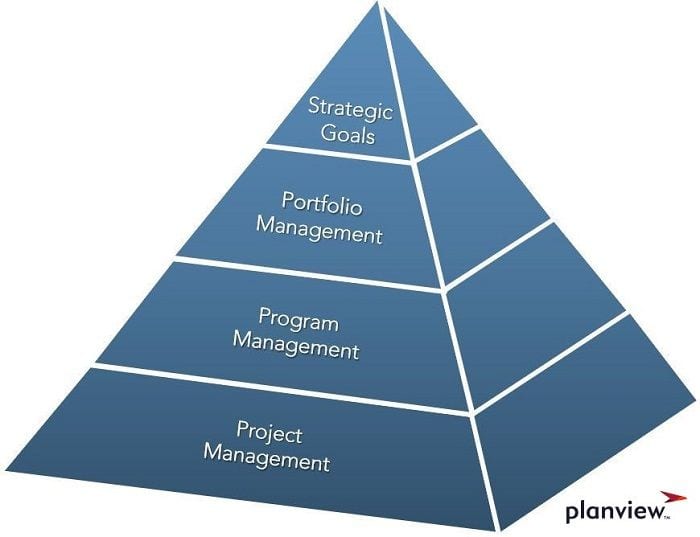
The team manager oversees a group. They balance their workload and complete tasks on time. They can also resolve conflict and give constructive feedback. Successful managers balance their work with the needs of their team members. These qualities make team management effective. They are also able to inspire their team members and improve their morale.
Leadership skills
For a manager to succeed, it is essential that they have leadership skills. Team leaders must have strategic thinking and be able to translate long-term organizational goals into tangible results. Leaders who lack this skill will cause problems for the organization. They will lose sight both of the importance and the role of their team in the organization. Developing strategic thinking requires a leader to step back from current issues and understand the organization's goals and the complexities of internal and external factors.
It is important for team leaders to be approachable, and open to talking with others. Openly listening is an essential skill in leadership because it shows that you understand other people's viewpoints and can listen to their concerns before you decide how to deal with them. This skill allows you motivate your team and to acknowledge their input.

Communication skills
Communication skills are vital in the workplace and leading a group. An organization's failure to communicate effectively is a significant obstacle to its success. Gatehouse research found that poor communication by managers was the number one reason for ineffective internal communication. Also, only 14% of employees stated that their performance reviews inspired them. Managers should learn how to motivate their staff and build trust. This can be achieved by listening effectively and clarifying the views and ideas of their colleagues.
Communication with people should be straightforward and honest. Different employees prefer details, while others prefer generalizations. It is possible to adjust your communication style based on the type of communication your team members prefer. The more you pay attention to your team's communication preferences the more they will feel heard and understood.
Skills in organization
It is essential to have organizational skills if you are going to lead a group. These skills help you to manage time, people, and conflict. Being able to prioritize tasks and organize will help you appear more trustworthy and increase your credibility. The ability to think through complex issues and create solutions is a sign of organizational competence. You will also feel calmer under pressure if you are organized.
A better organizational skill will help you communicate with your team better. Organization will allow you to focus more on important tasks. A cluttered workspace can lead to decreased focus on your work and stress. It's a good idea to rewrite your task list to help keep your workspace tidy.

Time management
Team management requires time management skills. This includes regular check ins and the use or tools to track the status each project. Encourage team members to be productive, and celebrate their achievements. You can increase productivity of your team and avoid overload by practicing time management.
Your company's success depends on how big or small your staff is. Developing an effective time management strategy requires you to be flexible enough to adapt to changes in the circumstances. Aligning your team is one way to achieve this. According to studies, teams spend two-thirds their time communicating, connecting, or collaborating. Inefficient communication can also lead to 15 percent less employee time.
FAQ
What is Six Sigma?
It's a method for quality improvement that focuses on customer service as well as continuous learning. The objective is to eliminate all defects through statistical methods.
Six Sigma was developed at Motorola in 1986 as part of its efforts to improve manufacturing processes.
The idea quickly spread in the industry. Many organizations today use six-sigma methods to improve product design and production, delivery and customer service.
What are some common management mistakes?
Sometimes managers make it harder for their employees than is necessary.
They may not be able to delegate enough responsibility to staff or provide adequate support.
A majority of managers lack the communication skills needed to motivate their team and lead them.
Some managers create unrealistic expectations for their teams.
Managers may attempt to solve all problems themselves, rather than delegating it to others.
What does it mean to say "project management"
This refers to managing all activities that are involved in a project's execution.
This includes defining the scope, identifying the requirements and preparing the budget. We also organize the project team, schedule the work, monitor progress, evaluate results, and close the project.
Why is it so important for companies that they use project management techniques
Project management techniques can be used to ensure smooth project execution and meeting deadlines.
This is because many businesses depend heavily upon project work to produce products and services.
Companies need to manage these projects efficiently and effectively.
Companies could lose their time, reputation, and money without effective project management.
How does a manager motivate their employees?
Motivation refers to the desire or need to succeed.
It is possible to be motivated by doing something you enjoy.
Another way to get motivated is to see yourself as a contributor to the success of the company.
You might find it more rewarding to treat patients than to study medical books if you plan to become a doctor.
Another source of motivation is within.
One example is a strong sense that you are responsible for helping others.
Maybe you like working hard.
Ask yourself why you feel so motivated.
Next, think of ways you can improve your motivation.
Statistics
- The average salary for financial advisors in 2021 is around $60,000 per year, with the top 10% of the profession making more than $111,000 per year. (wgu.edu)
- The profession is expected to grow 7% by 2028, a bit faster than the national average. (wgu.edu)
- Your choice in Step 5 may very likely be the same or similar to the alternative you placed at the top of your list at the end of Step 4. (umassd.edu)
- 100% of the courses are offered online, and no campus visits are required — a big time-saver for you. (online.uc.edu)
- As of 2020, personal bankers or tellers make an average of $32,620 per year, according to the BLS. (wgu.edu)
External Links
How To
How can you create a Quality Management Plan, (QMP)?
QMP (Quality Management Plan) is a system to improve products and services by implementing continuous improvement. It helps to improve customer satisfaction and product/service quality by continuously measuring, analyzing, controlling and improving.
QMP is a standard way to improve business performance. QMP's goal is to improve service delivery and production. A QMP should include all three aspects - Processes, Products, and Services. A "Process" QMP is one that only includes one aspect. The QMP that focuses on a Product/Service is called a "Product." QMP. QMP is also used to refer to QMPs that focus on customer relations.
Two main elements are required for the implementation of a QMP. They are Scope and Strategy. These elements can be defined as follows.
Scope is what the QMP covers and how long it will last. For example, if your organization wants to implement a QMP for six months, this scope will define the activities performed during the first six months.
Strategy: This describes the steps taken towards achieving the goals set forth in the scope.
A typical QMP comprises five phases: Planning and Design, Development, Construction, Implementation, Maintenance. Below is a description of each phase:
Planning: This stage determines the QMP goals and prioritizes them. All stakeholders involved in the project are consulted to understand their requirements and expectations. Once the objectives and priorities have been identified, it is time to plan the strategy to achieve them.
Design: In this stage, the design team designs the vision and mission, strategies, as well as the tactics that will be required to successfully implement the QMP. These strategies are then put into practice by creating detailed plans.
Development: Here, the development team works towards building the necessary capabilities and resources to support the implementation of the QMP successfully.
Implementation: This is the actual implementation and use of the QMP's planned strategies.
Maintenance: This is an ongoing procedure to keep the QMP in good condition over time.
The QMP must also include several other items:
Stakeholder involvement is important for the QMP's success. They need to be actively involved in the planning, design, development, implementation, and maintenance stages of the QMP.
Initiation of a Project: A clear understanding and application of the problem statement is crucial for initiating a project. In other words, the initiator needs to know why they want to do something and what they expect from the outcome.
Time Frame: The time frame of the QMP is very critical. You can use a simplified version if you are only going to be using the QMP for short periods. However, if you have a long-term commitment, you may require more elaborate versions.
Cost Estimation. Cost estimation is another crucial component of QMP. You cannot plan without knowing how much money you will spend. It is therefore important to calculate the cost before you start the QMP.
The most important thing about a QMP is that it is not just a document but also a living document. It can change as the company grows or changes. So, it should be reviewed periodically to make sure that it still meets the needs of the organization.